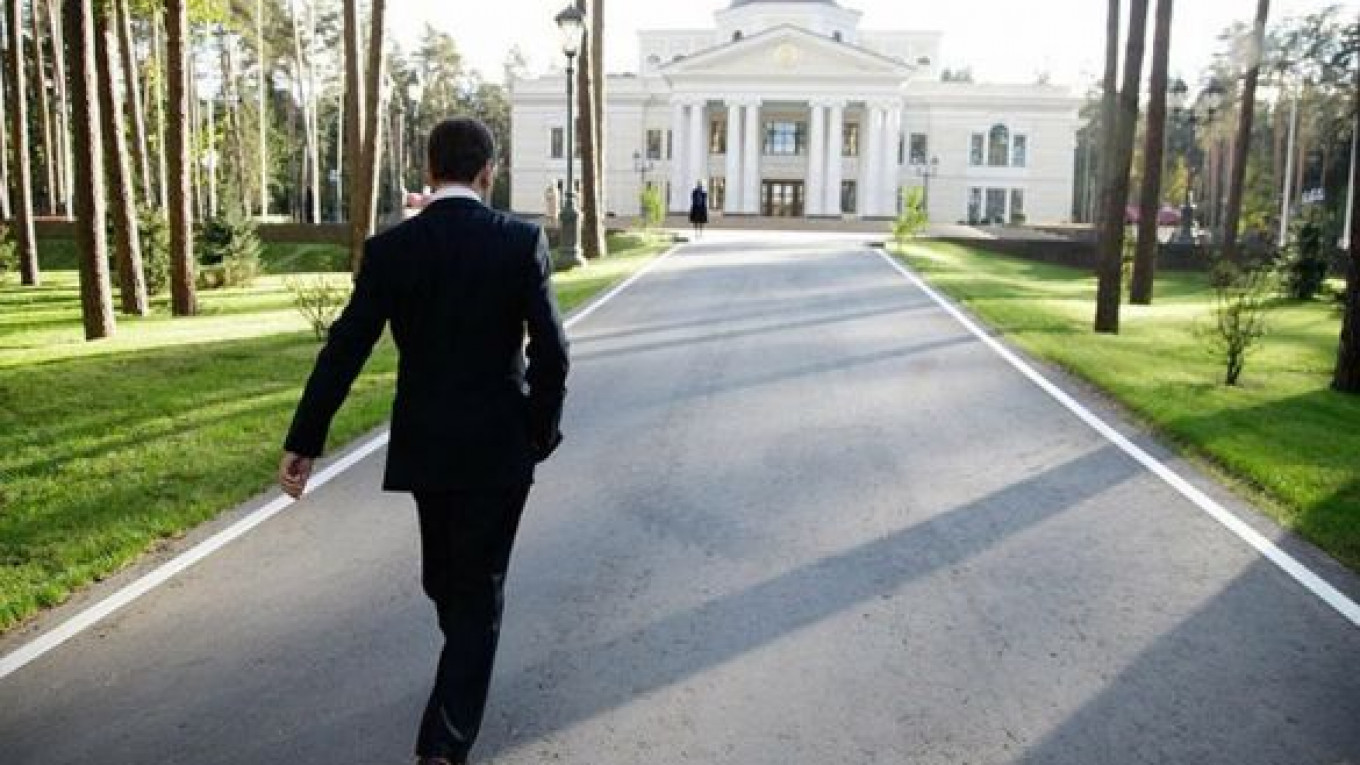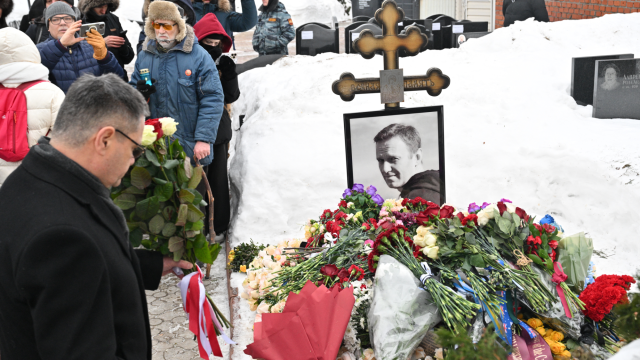Under Russian law, the future president and prime minister should swap their official residences after the March 4 presidential election.
"But we have no assignments for it at this moment," Office for Presidential Affairs spokesman Viktor Khrekov told The Moscow Times. "I don't think anything will change."
Officially, Dmitry Medvedev has four residences: the Kremlin in Moscow, Gorki-9 located 15 kilometers outside Moscow, Bocharov Ruchei in Sochi and Dolgiye Borody in the Novgorod region near Valdai.
Vladimir Putin has two official residences: Novo-Ogaryovo on Rublyovo-Uspenskoye Shosse and Riviera in Sochi.
Gorki-9 was used as the government dacha of former President Boris Yeltsin before he moved to a residence in Barvikha. Gorki-9 was not used again until Dmitry Medvedev became president, RIA-Novosti said.
Under Russian law, former presidents have a variety of privileges, one of which is the use of a government dacha until their death.
On leaving the presidency in 2008, Vladimir Putin chose his one-time official residence Novo-Ogaryovo as his government dacha. So he would be able to live in Novo-Ogaryovo even if he hadn't become prime minister.
Functionally, all the residences are equal. They are wired with the latest communications technology for work and equipped for convenient living. "I think that there will not be any moving required," said Vladimir Kozhin, head of the Office for Presidential Affairs, Interfax reported.
The elaborate nonofficial residence is Konstantinov Palace, otherwise known as National Congress Palace, near St. Petersburg, which has 140 hectares of grounds.
For hunting, Russian leaders use the Zavidovo retreat in the Tver region and Mein Dorf Castle — the Office for Presidential Affairs' residence near Barvikha, according to RIA-Novosti.
Mein Dorf residence can also be used by private persons for various special events such as weddings.
Other government residences are less popular. They include Sosny in Krasnoyarsk, Volzhsky Utyos in the Samara region, Angarskiye Khutora near Irkutsk, the Tantal residence in the Saratov region, Maly Istok in Yekaterinburg and others.
One residence — Shuiskaya Chupa in the republic of Karelia — was sold at an auction to the Severgroup company in April 2011. The deal was worth 291 million rubles ($10 million), RBK reported. The total area of the complex was 50 hectares.
The mysterious and opulent "Putin's Palace" is located in the Krasnodar region near the city of Gelendzhik. An investment contract showed the Office for Presidential Affairs and a company called Lirus with ties to the government as parties in the construction of the 740,000-square-meter resort complex. Lirus was to invest 400 million rubles in the project and was to own 70 percent of the developed area, with the rest going to the Office for Presidential Affairs. However, the site was sold to billionaire Alexander Ponomarenko for an undisclosed sum.
A Message from The Moscow Times:
Dear readers,
We are facing unprecedented challenges. Russia's Prosecutor General's Office has designated The Moscow Times as an "undesirable" organization, criminalizing our work and putting our staff at risk of prosecution. This follows our earlier unjust labeling as a "foreign agent."
These actions are direct attempts to silence independent journalism in Russia. The authorities claim our work "discredits the decisions of the Russian leadership." We see things differently: we strive to provide accurate, unbiased reporting on Russia.
We, the journalists of The Moscow Times, refuse to be silenced. But to continue our work, we need your help.
Your support, no matter how small, makes a world of difference. If you can, please support us monthly starting from just $2. It's quick to set up, and every contribution makes a significant impact.
By supporting The Moscow Times, you're defending open, independent journalism in the face of repression. Thank you for standing with us.
Remind me later.






